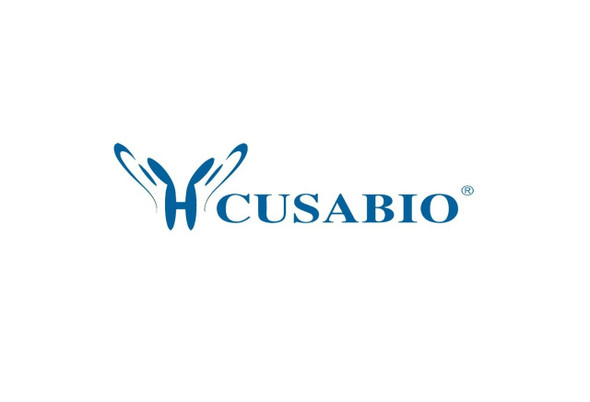Cusabio Polyclonal Antibodies
RRAGA/RRAGB Antibody | CSB-PA590465
- SKU:
- CSB-PA590465
- Availability:
- 3 to 7 Working Days
- Size:
- 100ul
Description
RRAGA/RRAGB Antibody | CSB-PA590465 | Cusabio
RRAGA/RRAGB Antibody is Available at Gentaur Genprice with the fastest delivery.
Online Order Payment is possible or send quotation to info@gentaur.com.
Product Type: Polyclonal Antibody
Target Names: RRAGA/RRAGB
Aliases: Ras-related GTP-binding protein A; Rag A; RagA; Adenovirus E3 14.7 kDa-interacting protein 1; FIP-1
Background: Guanine nucleotide-binding protein forming heterodimeric Rag complexes required for the amino acid-induced relocalization of mTORC1 to the lysosomes and its subsequent activation by the GTPase RHEB. This is a crucial step in the activation of the TOR signaling cascade by amino acids. Involved in the RCC1/Ran-GTPase pathway. May play a direct role in a TNF-alpha signaling pathway leading to induction of cell death. May alternatively act as a cellular target for adenovirus E3-14.7K, an inhibitor of TNF-alpha functions, thereby affecting cell death.
Schuermann A., J. Biol. Chem. 270:28982-28988 (1995) .
Li Y., J. Virol. 71:1576-1582 (1997) .
Hirose E., J. Cell Sci. 111:11-21 (1998) .
Isotype: IgG
Conjugate: Non-conjugated
Clonality: Polyclonal
Uniport ID: Q7L523/Q5VZM2
Host Species: Rabbit
Species Reactivity: Human, Mouse, Rat
Immunogen: Synthesized peptide derived from internal of human RRAGA/B.
Immunogen Species: Human
Applications: ELISA, WB
Tested Applications: ELISA, WB;WB:1:500-1:3000
Purification Method: The antibody was affinity-purified from rabbit antiserum by affinity-chromatography using epitope-specific immunogen.
Dilution Ratio1: ELISA:1:2000-1:10000
Dilution Ratio2: WB:1:500-1:3000
Dilution Ratio3:
Dilution Ratio4:
Dilution Ratio5:
Dilution Ratio6:
Buffer: Rabbit IgG in phosphate buffered saline (without Mg2+ and Ca2+), pH 7.4, 150mM NaCl, 0.02% sodium azide and 50% glycerol.
Form: liquid
Storage: Upon receipt, store at -20°C or -80°C. Avoid repeated freeze.
Initial Research Areas: Microbiology
Research Areas: Epigenetics & Nuclear Signaling;Cancer;Metabolism;Microbiology;Signal transduction






